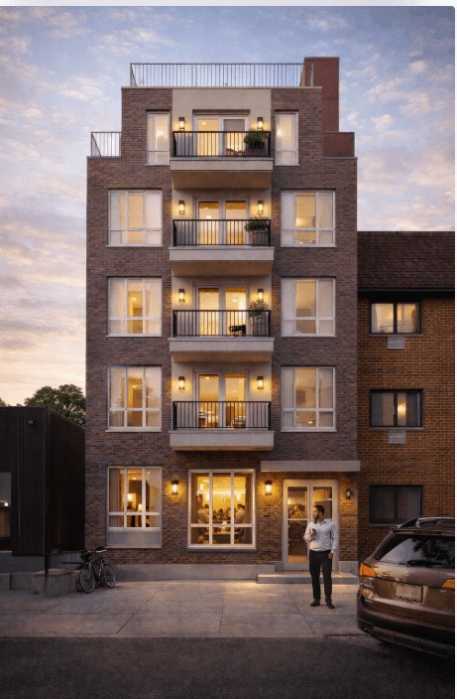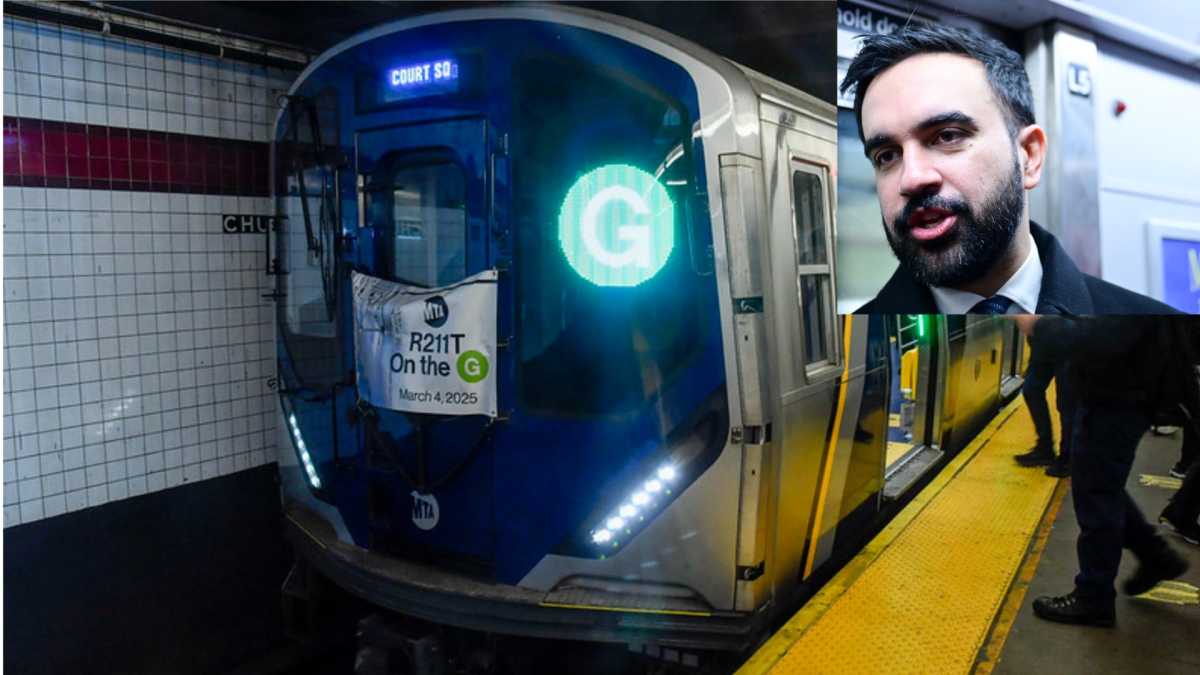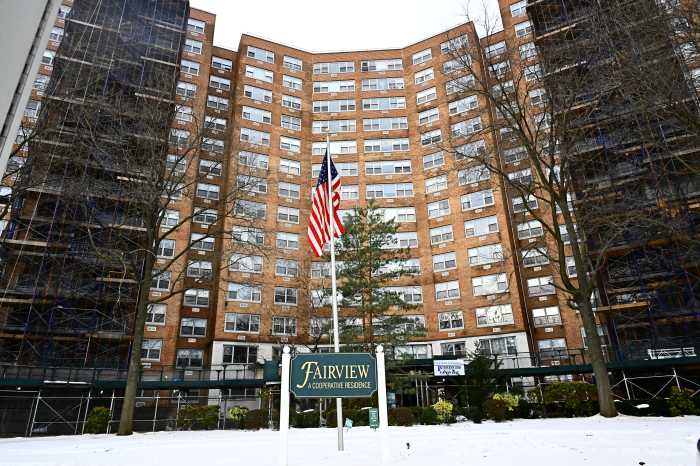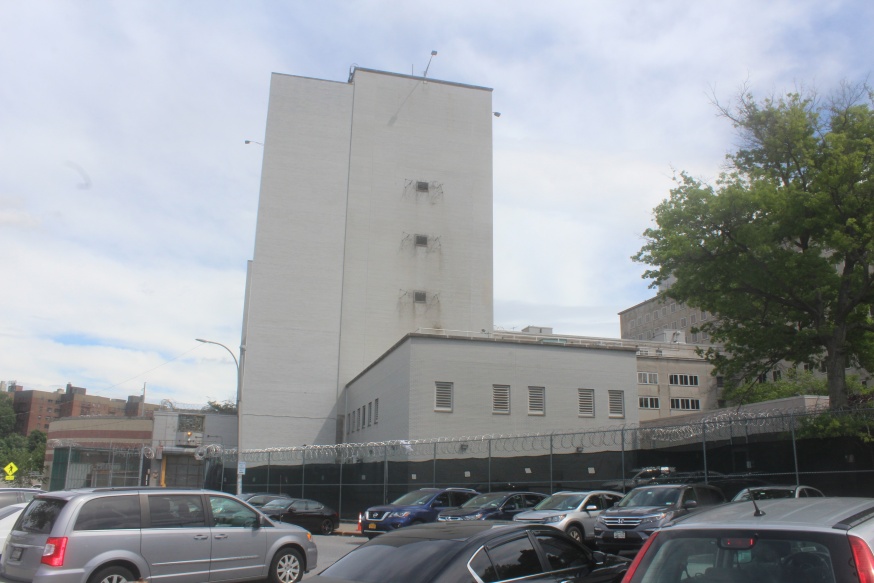
The site of the Queens House of Detention that was decommissioned in 2002. Building will be demolished and redeveloped as part of City’s borough-based jail plan
Sept. 3, 2019 By Shane O’Brien
Mayor Bill de Blasio’s proposal to close down Rikers Island and replace it with four borough-based jails moved a step closer to reality on Tuesday with the City Planning Commission (CPC) approving the controversial plan.
The plan to shut down Rikers Island and replace it with four new community jails–one in each borough except for Staten Island–was approved by the CPC by a 9-3 vote, with one commissioner abstaining.
The proposal now goes to the City Council for a vote. The council, which will ultimately determine its fate, has 50 days to approve it. A public hearing is scheduled for Thursday.
The proposal has proved contentious since it was formally announced in August 2018, with many New Yorkers opposed to the construction of large jail complexes in residential communities.
The mayor backs the plan since he wants to shut Rikers Island, citing studies pointing to its unsafe and inhumane condition.
The city proposes replacing Rikers Island with four equal-sized jails in each of the four boroughs. Each jail would hold approximately 1,000 inmates and the Queens facility would go up in Kew Gardens.
The proposal calls for replacing the decommissioned Queens House of Detention at 126-02 82nd Ave. in Kew Gardens with a modern 27-story, 1.3 million square foot jail.
The city has based its proposal on a projected decline in New York City’s jail population. It expects to essentially halve the population of Rikers Island by 2026, when it aims to open the four new facilities.
The inmate population on Rikers Island currently stands at approximately 7,300 and the city forecasts that it will drop to 4,000 in the next seven years.
The proposal was rejected by all four community boards where the jails will be sited earlier this year. Additionally, Queens Borough President Melinda Katz and Bronx Borough President Ruben Diaz Jr rejected the proposal in July.
Manhattan Borough President Gale Brewer and Brooklyn Borough President Eric Adams both conditionally approved it.
However, all decisions up until today have been advisory and non-binding. The CPC’s decision is the first to be binding.
The CPC’s announcement has received a mixed reaction.
Diaz said that the CPC ignored Bronx residents’ legitimate fears by approving the plan.
“It is unfortunate that the City Planning Commission has declined to listen to the serious concerns of the people of my borough, and has instead chosen to move forward with a plan to close Rikers Island that builds a new jail in the wrong place,” Diaz Jr said in a statement.
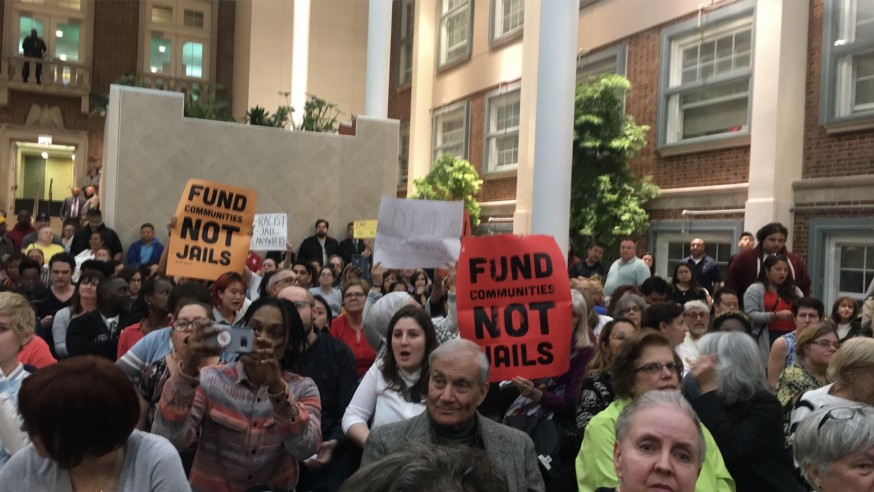
No New Jails group protesting at the public hearing in Kew Gardens earlier this year (Photo: Meghan Sackman)
Members of No New Jails NYC, a protest organization against the Mayor’s proposal, interrupted Tuesday’s CPC meeting and loudly protested as the commissioners explained their vote, according to various reports.
In a statement, the group said that the CPC failed to listen to the public and instead focused on profits and development.
“The City Planning Commission’s review of the jails plan was riddled with secrecy, lapses in transparency, conflict of interest, and potentially illegal actions,” the group said in a statement.
Jonathan Lippman, former Chief Judge of New York, commended the CPC for approving the proposal, stating that there was a need to close Rikers Island. He urged the City Council to approve the plan.
“I am hopeful that they will work to make this plan the best that it can be for those inside and outside of the facilities,” Lippman said. “We have a once-in-generations opportunity to shut the door on a dark chapter in our City’s history.”
Queens residents have been particularly vociferous in their opposition of the mayor’s proposal.
Local residents have regularly protested against the proposed jail in Kew Gardens since March, when the public review process began.
In June, a grassroots movement of local residents and community groups marched on Queens Borough Hall to implore de Blasio to halt plans to build the Kew Gardens facility. A similar march took place in April.
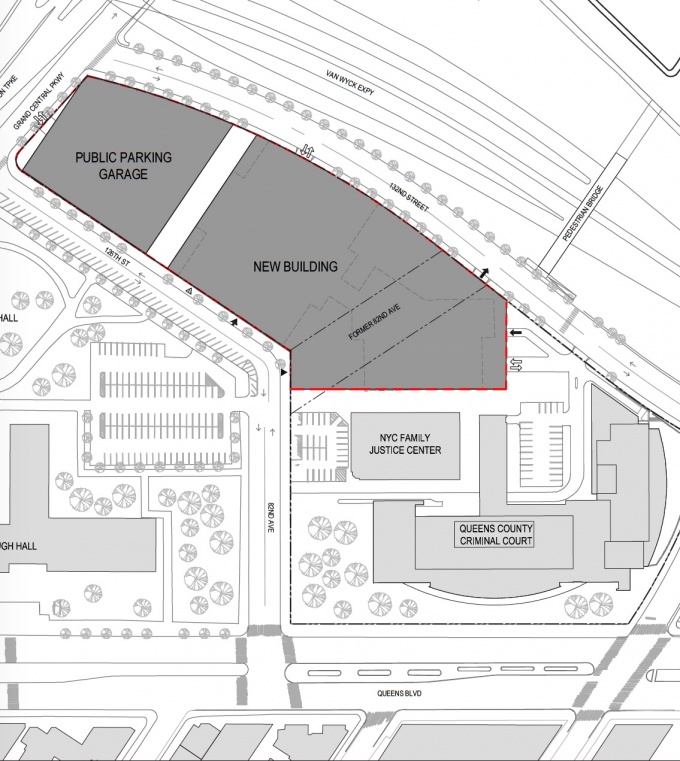
Plans for the Kew Gardens jail (City Planning Commission). The new building is planned where the Queens Detention Complex is currently located

